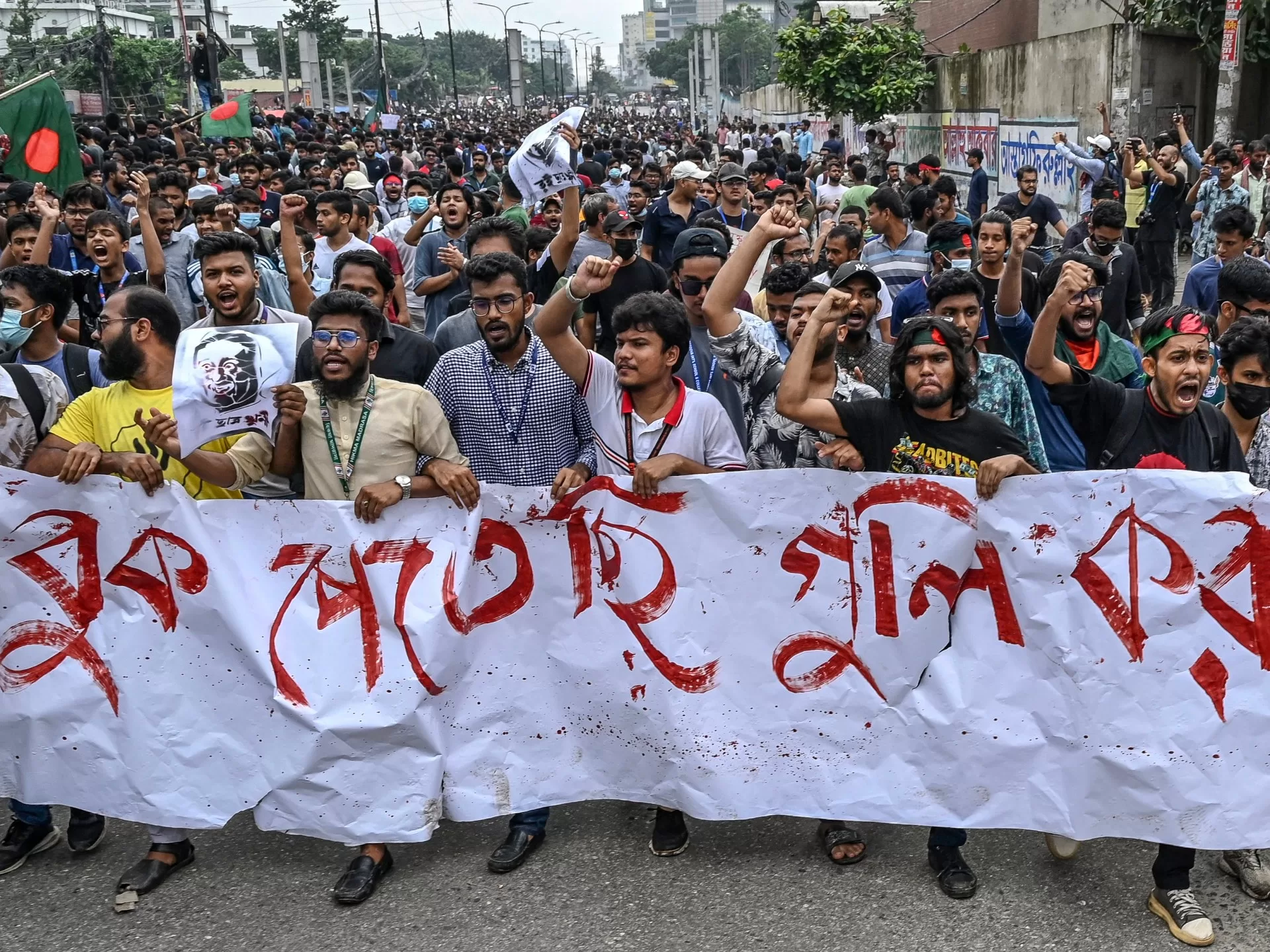Crowds hit the streets in large numbers as student leaders press the government for more concessions.
Protesters in Bangladesh have taken to the streets to demand justice for the more than 200 people killed in last month’s student-led demonstrations over quotas in government jobs.
The large protests on Saturday came as student leaders called for a nationwide civil disobedience campaign, heaping further pressure on Prime Minister Sheikh Hasina’s government.
Reporting from Dhaka, Al Jazeera’s Tanvir Chowdhury said clashes took place between protesters and police in the Gazipur and Comilla districts in the capital’s outskirts.
He added that the student movement had turned “into a public movement“, noting that people from all walks of life had joined Saturday’s protests calling for the government to resign.
Hasina on Saturday called upon protest leaders to meet her at her official residence Ganabhaban, saying the “door is open”.
“I want to sit with the agitating students of the movement and listen to them. I want no conflict,” she said, according to local media.
The prime minister has also appointed three senior officials to negotiate with the protesters, Chowdhury reported.
However, Students Against Discrimination, the group that organised the initial demonstrations in early July, has called for an all-out non-cooperation movement from Sunday.
“This includes non-payment of taxes and utility bills, strikes by government workers and a halt to overseas remittance payments through banks,” the group’s Asif Mahmud told AFP.
The demonstrations began over the reintroduction of a quota scheme – since scaled back by Bangladesh’s top court – that reserved more than half of all government jobs for certain groups.
With some 18 million young Bangladeshis out of work, according to government figures, the move upset graduates facing an acute unemployment crisis.
The protests had remained largely peaceful until attacks on demonstrators by police and pro-government student groups.
Hasina’s government eventually imposed a nationwide curfew, deployed troops and shut down the nation’s mobile internet network for 11 days to restore order.
Home Minister Asaduzzaman Khan told reporters that security forces had operated with restraint but were “forced to open fire” to defend government buildings.
The government has been weathering a worsening backlash over the deadly police crackdown that resulted in deaths of at least 200 people including 32 children, as well as hundreds of pellet gun injuries.
UN experts have called for an immediate end to the violent crackdown against protesters as well as accountability for human rights violations.
UN Human Rights Chief Volker Turk today called on the government to disclose full details about its crackdown on protests and to provide the details of those killed, injured or detained for the benefit of their families.
European Union foreign policy chief Josep Borrell also called for an international probe into the “excessive and lethal force against protesters”.
